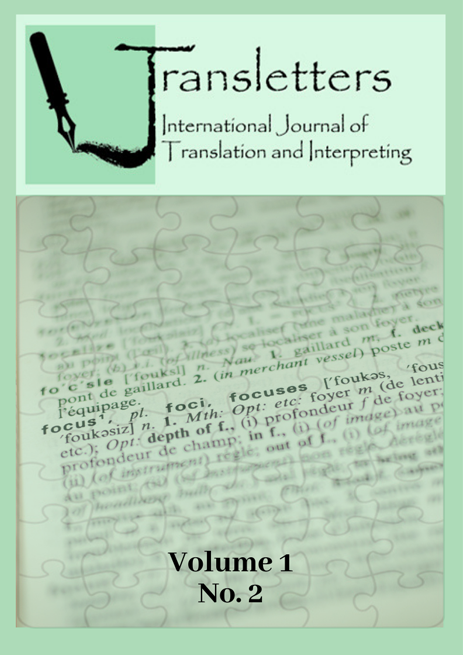The Nigeria French Language Village’s Postgraduate Diploma in Translation and Interpretation Program: Context, Content and Comments
Main Article Content
Abstract
When, in the early 2000, in response to the dire need and high demand for the training of professional translators and interpreters in the country, the Nigeria French Language Village (NFLV), a federal government owned interuniversity centre for French studies located in Lagos State, Nigeria, took the bull by the horns in mounting a Postgraduate Diploma in Translation and Interpretation program, it was undoubtedly considered by many stakeholders as a step in the right direction. As at that time, the number of institutions offering similar programs in Nigeria was (and still remains) very scanty. Unfortunately, the NFLV program only lasted for a couple of years because in 2013, the authorities of the institution decided to put it on hold due to certain challenges. The plan was to reform and relaunch the program. Using the NFLV program as a case study and adopting qualitative content analysis as methodological approach, this paper seeks to carry out an appraisal of the impact of such programs on the public they were designed to serve. In doing this, we carried out a thematic content analysis of the official document available on the program, a questionnaire was also administered to a sample of graduates of the program with in order to understand their view and assessment of the program from their personal experience. Based on the comments emerging from the appraisal and considering international best practices, recommendations are offered on ways to revamp the program which, from all indications, is still very much needed in the multilingual Nigeria in particular, and the West African sub-region as a whole.
Downloads
Article Details
Suggested policy for journals that offer open access
Authors who publish with this journal agree to the following terms:
1. Authors retain copyright and grant the journal the right of first publication with the work simultaneously licensed under a Creative Commons Attribution License, which allows others to share the work with an acknowledgement of authorship of the work and initial publication in this journal.
2. Authors may enter into additional contractual arrangements for non-exclusive distribution of the published version of the paper in the journal (e.g., submission to an institutional repository), with an acknowledgement of its initial publication in this journal.
3. Authors are allowed and encouraged to publish their work prior to the final version published in this journal once accepted (e.g., in institutional repositories or on their website), as it can lead to productive exchanges, as well as earlier and higher citation of the published work (see The Open Access Effect).

